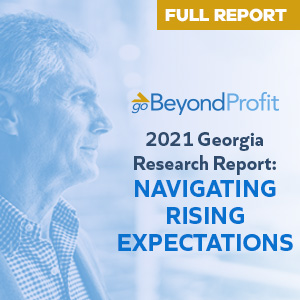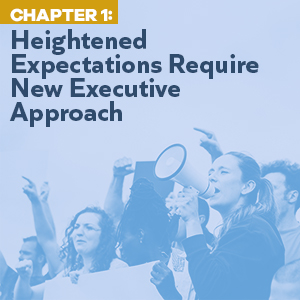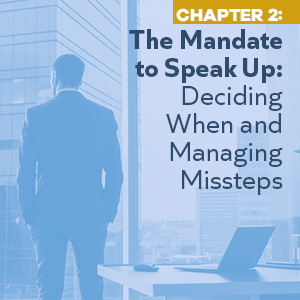Chapter 3
When, Why and How Georgians React to Company Behaviors
Summary: Georgians do act – for and against – businesses based on their perception of company behavior. Most Georgians have changed purchasing behaviors, from boycotting to paying more for products. And many have acted as disgruntled employees. Their trigger issues range widely, so companies should be seen as thoughtful and caring where it matters most, stay true to their values, and earn a broad reputation as empathetic and generous.
Georgians support generous businesses with purchasing dollars and employer loyalty. The trend continues and frankly has intensified. Employees and customers align their behavior with their values and reward businesses they perceive as generous.
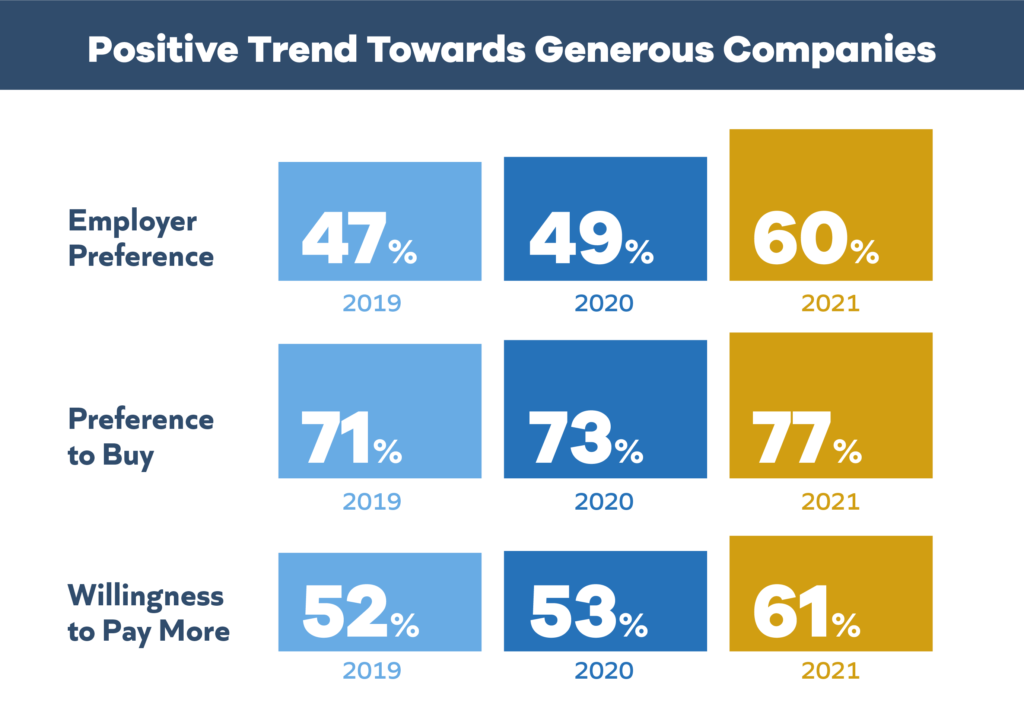
When compared to previous years, 2021 held statistically significant increases in employees who agree they consider generosity when deciding whether to work for or stay with a company (now 60%). Consumers who agree they prefer buying from generous companies are up to 77% and those who agree they will pay more for products from their favorite generous businesses are up to 61%.
At a moment when third-party experts predict companies need productive employees and loyal customers more than ever – these numbers are eye-opening data for prioritizing generosity.

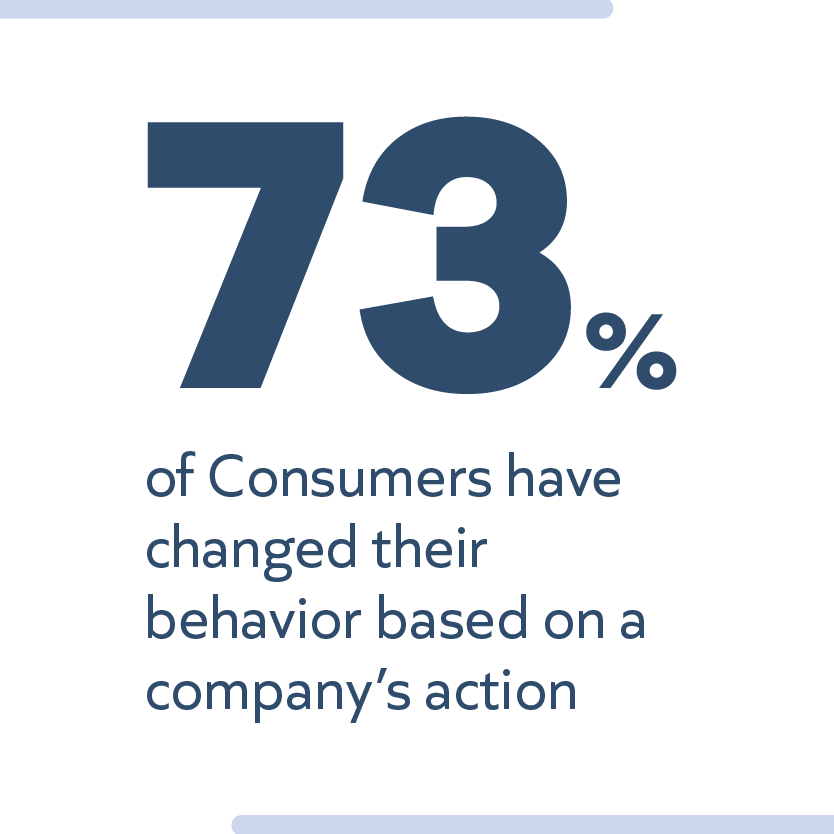
What makes Consumers switch brands?
A remarkable 73% of consumers admit they have changed their purchasing behavior based on a company’s actions. Triggers for changing purchasing behaviors included a broad swath of issues, led by hot-button topics of politics, race and environment.
RISKS: The majority of these activated consumers (64%) either stopped buying products from that company or (54%) tried to influence others by sharing negative information, boycotting or protesting.
REWARDS: When a company is judged favorably, high numbers of customers will change their behavior toward a company such as sharing positive information (68%), starting to buy a product (45%) and even (26%) paying more for a product.
Gaining consumer trust and durability involves knowing core consumers’ priorities and hot-button issues as well as helping them see when their values align with a company.
What motivates employees to stay, go or damage from within?
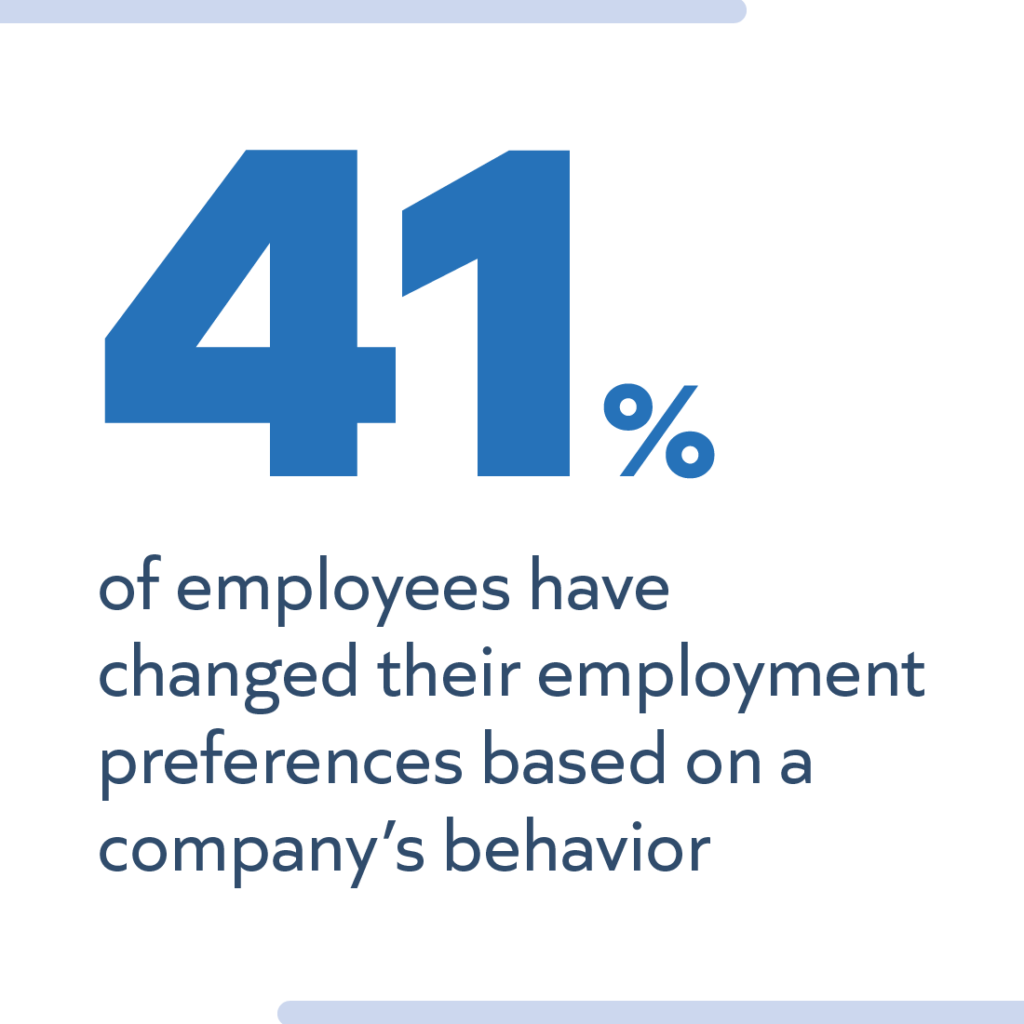
When it comes to employment behaviors, 41% of employed Georgians have changed their employment preferences based on the way a company behaved. Triggers for this behavior change were led most by employer’s actions on healthcare, gender equality and racial inequity.
RISKS: Of the 41% who said they’ve made changes, the most damaging actions include those people who avoided employment with a particular company (44%), actively pursued opportunities to leave an employer (42%), quit a job (33%) and — potentially even more damaging to company productivity and morale – the 20% who say they wanted to leave a job.
REWARDS: Of that same 41% of employees who said they changed their behavior, 31% said they actively pursued employment opportunities with a particular company where they perceive alignment. The business culture and financial value of aligned and motivated prospects knocking on HR’s door can be substantial.
Happy employees and high morale are shown to aid productivity and retention and be valuable in helping recruit other qualified candidates. High turnover is known to be costly, but what are the risks of disgruntled employees in the ranks? Clarity on employee engagement and loyalty is a key lever for business value.
A game plan for the win.
Leaders will benefit by finding a degree of comfort with ill-aligned people falling away, while consciously working to attract, retain and galvanize the truly aligned.
Discipline against core values becomes the critical factor for effectively managing this dynamic. The report insights show companies need to know and express clear values, find the customers and employees best aligned with them, and communicate well to be seen as a caring company.

